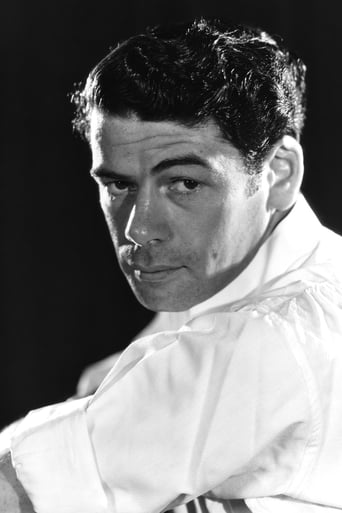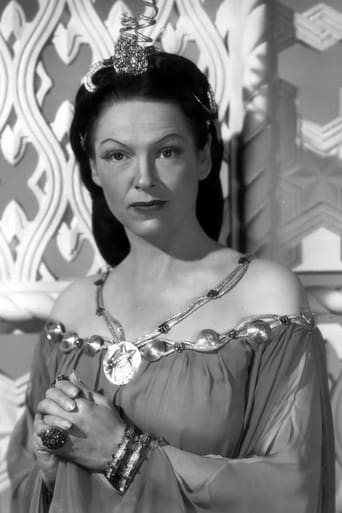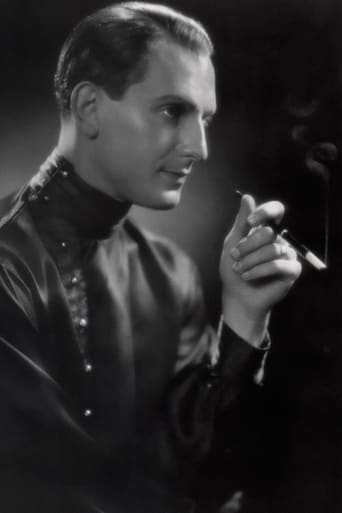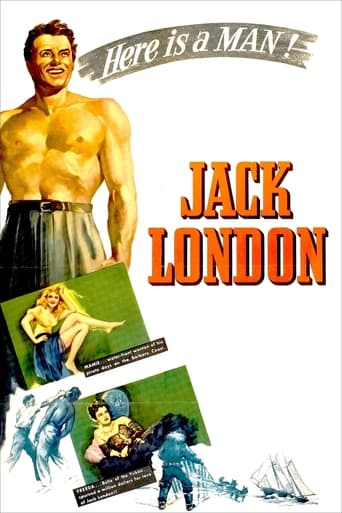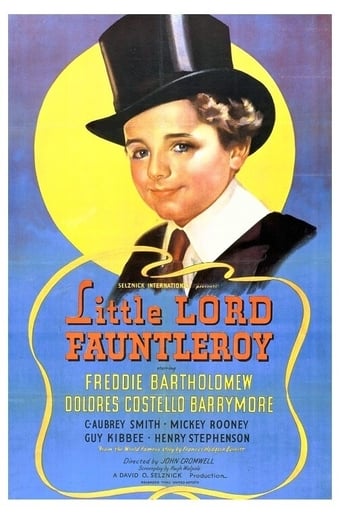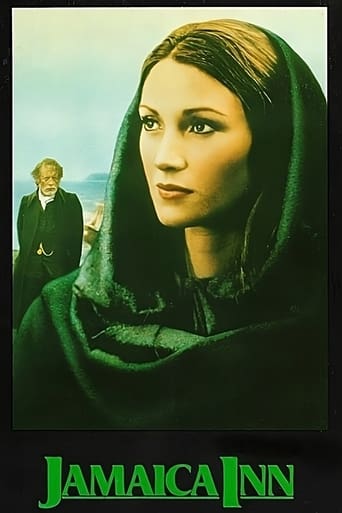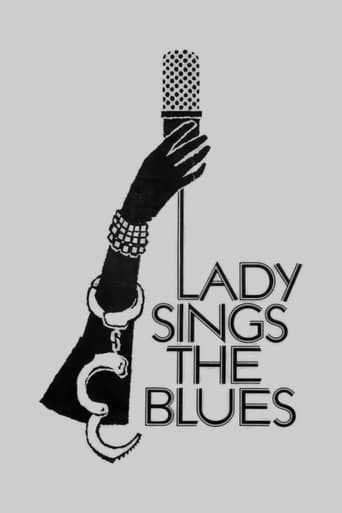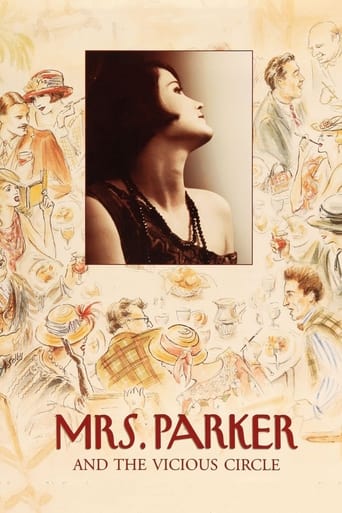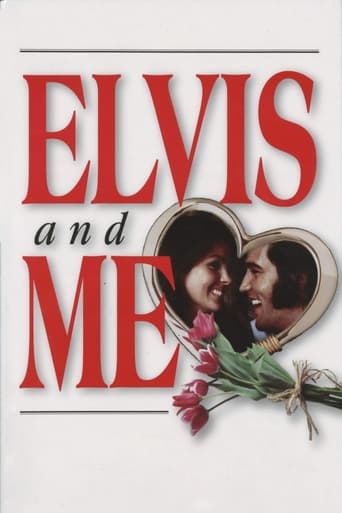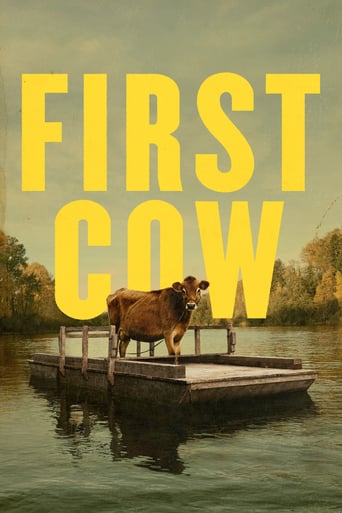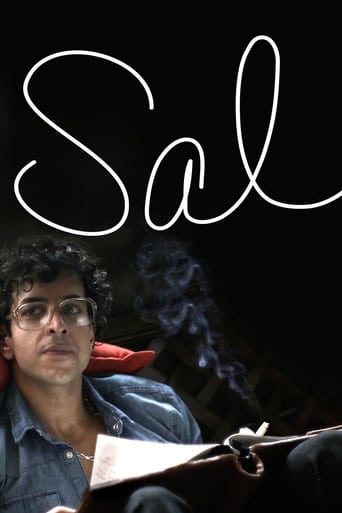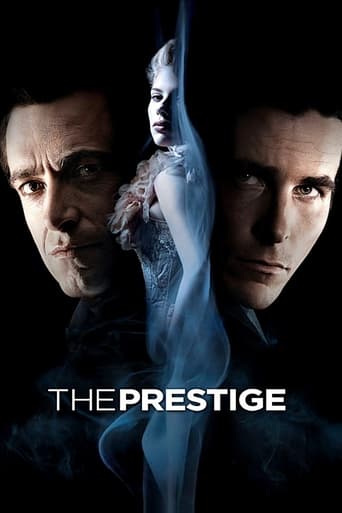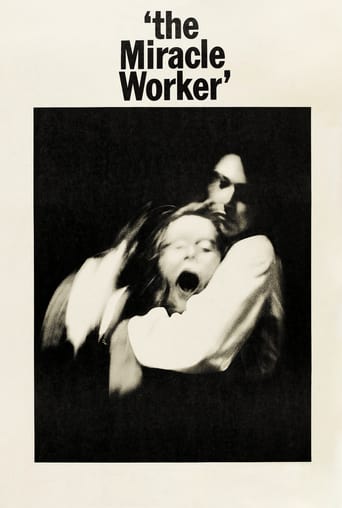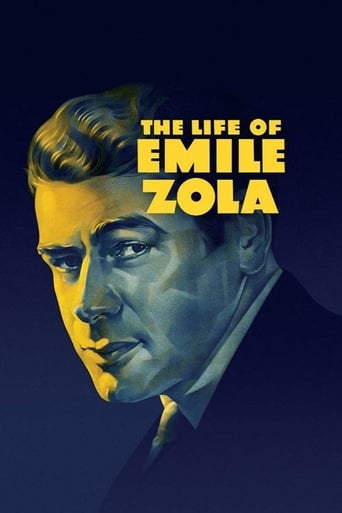
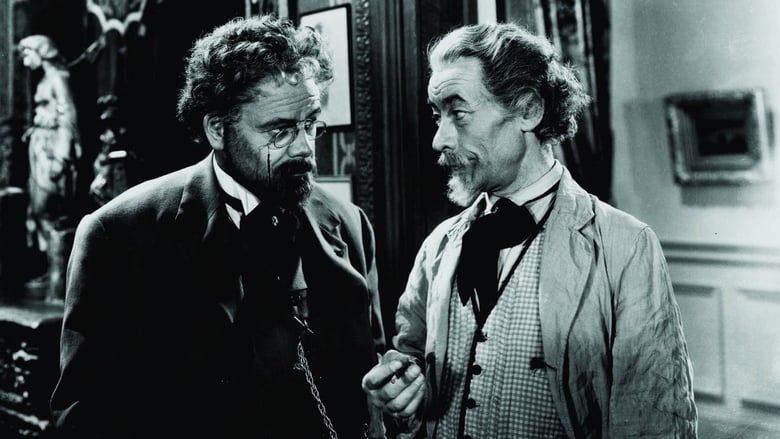
The Life of Emile Zola (1937)
Biopic of the famous French writer Emile Zola and his involvement in the Dreyfus Affair.
Watch Trailer
Cast


Similar titles
Reviews
The Life of Emile Zola transported me to a place that I have never been, yet, is so familiar to me. I was thrust into a world where acting meant something more artistic than it commonly does today. I entered a place with a very theatrical grip on the storyline playing out on screen. The 1937 Best Picture winner directed by William Dieterle took me to that place. It proved to be an interesting and fun journey to see one of the first biopics. I am grateful for Oscar month to introduce me to yet another film that I may not have interacted with had it not nabbed Oscar's top prize. French author Emile Zola (Paul Muni) was no stranger to struggle. His tireless pursuit of his writing dreams left him broke and only able to afford to share a tiny apartment with painter, Paul Cezanne (Vladimir Sokoloff). Bouncing from job to job, Zola had a difficult time maintaining employment due to his outspoken nature. When inspiration and opportunity struck together, Zola was able to create his masterwork, Nana. His outspokenness would rear its head again when Zola entangled himself in the Dreyfus affair; the case of Alfred Dreyfus falsely convicted of giving classified military information to the Germans, a case largely fueled by anti-Semitism. Zola was so outspoken in the case of Alfred Dreyfus that on of his letters to his defense landed him in court for libel. Zola manages to become a successful literary personality while speaking out against the social injustices that plague his time. Some incredible cinematic devices were used to advance this film. To pass time and show the progression of the case and Zola's success, newspaper clippings flashed on-screen. Another show of Zola's success included the increasingly grandiose window displays with each next success Zola released. Both of these methods were extremely effective in avoiding the belaboring effort of slow plot advancement. The acting was great in this film, with each actor embodying a theatrical performance so common in films from this era. The makeup was exceptional as Zola ages dramatically throughout the film. I also found the courtroom speech of Zola berating the underlying issues of the Dreyfus affair to be impactful. With so much in this film to latch onto, there is something in Emile Zola for everyone.Even though anti-Semitism drove the Dreyfus Affair, little of it was mentioned in the film. I don't think that this admission takes away from the film, as there is plenty of implicit evidence as to the reason for Dreyfus's blame. I found the editing most effective in driving the film. The theme of always defending your fellow man from injustices was wonderfully juxtaposed with Zola's increasing success as a writer. With each copy of his provocative books sold, Zola gained a bigger platform for seeking social equality. A socially important film, covering issues that persist today, The Life of Emile Zola was the perfect choice for the Academy to crown as its Best Picture for 1937.
. . . was cleverly disguised as a general interest Bio-Pic--THE LIFE OF EMILE ZOLA. This movie glosses over most of Zola's biography, doing the bare minimum to establish him as one of France's most famous and beloved citizens (with no particular affinity for Jewish people). Then he blows the whistle on all the top generals of his country's anti-Semitic Army, which has framed a random Jewish Army captain (Alfred Dreyfuss) for the treasonous espionage crimes of a Christian colonel. Though the colonel is a bitter malcontent turned German spy caught red-handed, the French Army refuses to admit its general incompetence in overlooking such an obvious and damaging traitor so high up on its general staff for so long. Instead, it rips uninvolved bystander Alfred away from his family to an all-but-certain death-by-torture on Devil's (Prison) Island. Just as many if not most Americans, when polled, say they now believe two Texas oil men then in the White House allowed if not facilitated the 9-11 Attacks, Hollywood's non-Christian elite knew that France in the late 1930s was so anti-Semitic that they would welcome any Nazis crossing the French border with open arms, helping them to herd French Jews to whatever form of doom German brains formulated. This, of course, actually came to pass as feared within a few years of ZOLA's release, as the French took a full measure of revenge against their Jews for being so embarrassed internationally by the so-called Dreyfuss Affair. I own copies of Readers' Digest Magazine from this period containing articles which predict most if not all of the main events of WWII, including the "sneak" attack on Pearl Harbor (let me emphasize these warning stories were published in many of America's leading magazines months and years before the Nostradamus-like predictions came true!). Obviously, the non-Christian segment of Hollywood moguls--as well as the Academy (which voted ZOLA "Best Picture" of 1937) read their Readers' Digests. ZOLA is even gassed to death himself at the end of this warning cry, showing that the screenwriters knew Germans would prove too cheap to eradicate their millions of victims with individual bullets. As history teaches us, Hitler controlled the oddly nicknamed "Grand Old Party" in the U.S. Congress, making European Jews "toast"--despite Hollywood's brave efforts to save millions (for which these same Fascists punished most of the Hollywood heroes the minute WWII ended, with the infamous American "Blacklists," as well as a long string of suspicious and shockingly premature deaths among Tinsel Town's human rights sympathizers as names like Wayne, Heston, Kazan, and Reagan came to control American culture and the White House for nearly a century to come).
In 1862 Paris, struggling writer Paul Muni (as Emile Zola) is happy working with a book publisher. Because he writes about corrupt officials, Mr. Muni is called a "muckraker" and loses his job. However, fame and fortune are around the corner. Muni meets sad prostitute Erin O'Brien-Moore (as Nana) and writes her story. The book "Nana" is the first of many best-sellers. Years later, Muni sacrifices everything to defend Joseph Schildkraut (as Alfred Dreyfus), a Jewish man made a scapegoat by French authorities...Led by Muni's carefully constructed lead performance, "The Life of Emile Zola" was a huge success with audiences and critics. Muni won a "Best Actor" award from the "New York Film Critics" and Mr. Schildkraut received an "Academy Award" as "Best Supporting Actor". Those organizations named "Zola" best film of the year; adding its #1 placement on the annual "New York Times" and "Film Daily" lists, it was clearly the consensus winner for 1937. Disney's "Snow White" was the only real challenger...The Dreyfus affair is almost the whole film, making the title seem inappropriate. Also, the film seems shy about naming Schildkraut's character as Jewish. If you blink, you'll miss the piece of paper listing "Religion - Jew". Considering the looming World War, filmmakers likely wished the point was made more clearly. Despite its flaws, the production is excellent, with great roles from the cast and crew at Warner Bros. Sometimes overlooked among the more well-known names are outstanding art director Anton Grot and supporting actor Vladimir Sokoloff as Muni's drafty attic apartment roommate (acclaimed painter Paul Cezanne).******* The Life of Emile Zola (8/11/37) William Dieterle ~ Paul Muni, Joseph Schildkraut, Vladimir Sokoloff, Gale Sondergaard
This is an extraordinary picture, with wonderful performances. It should be seen by anyone who likes a good drama, but especially by someone who is unfamiliar with the Dreyfus Affair, as it was called. My only complaint is that the title is somewhat misleading. We don't learn a great deal about Zola's life, except that he shared an apartment in Paris with Paul Cezanne, wrote his first major novel about a prostitute he befriended when she was running from the police, was a champion of the poor and downtrodden, and became wealthy from his many books. Eighty-five minutes of the two hour long movie is devoted to the Dreyfus case and Zola's involvement with it, so the title should have reflected that.Paul Muni deserved to win an Oscar for his performance, which he didn't, although he was nominated. The supporting cast is uniformly excellent, as well.


